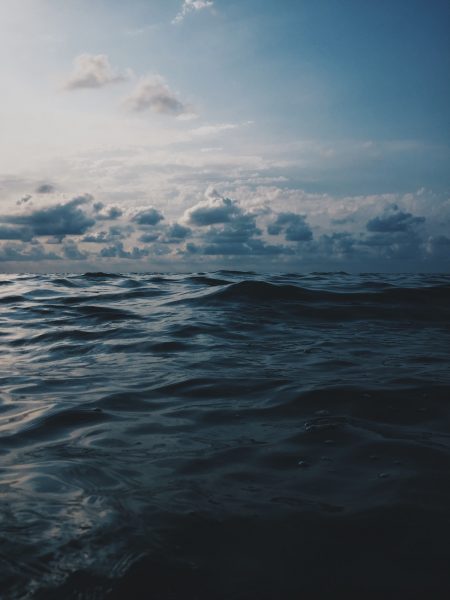BY TAYLOR LOGAN

The ocean is a vast, unknown mass. Dark, and unforgiving, most people can’t believe the sea, let alone the creatures it holds, need our help.
But it desperately does.
According to the United Nations Environment Programme, it was estimated that in 2006, 46,000 pieces of floating plastic were found polluting every square mile of ocean. Now, in 2019, the number has nearly doubled. Each year, plastic causes the death of more than a million seabirds and more than 100,000 other marine mammals.
And if that doesn’t shock you, microplastics are now finding their way into our food and water, and even our blood, all being traced to the mass amounts of pollution in earth’s oceans.
But there are people out there making a change.
The people at The Ocean Conservancy hold a love so deep for the ocean, it rivals the Marianas Trench.
The Ocean Conservancy, an initiative with a passion for saving the ocean through science-based solutions, has been making a change for the last 40 years through various projects.
One of these projects is Trash Free Seas.
For Tess Krasne, a project specialist for the Trash Free Seas program, her passion began at a young age. “My grandfather studied whales and porpoises when he was in his 20s and 30s, so I grew up hearing about some of the most incredible ocean creatures,” Krasne said, “Though I always knew I wanted to do something for the environment, I realized while studying abroad in Australia on the Great Barrier Reef that the ocean was so important and special, and needed our attention.”

Since her graduation from Washington University in 2016, Krasne has studied field ecology and anthropology on the Great Barrier Reef and the Gulf of Mexico. She swam with sharks, sea turtles and whale sharks. She has walked the ocean floor with manta rays and giant clams. And after seeing the beauty the sea can hold, she has become hooked on protecting marine life.
And her efforts on protecting these creatures have been noticed. Through plenty of volunteer effort, 12,949,862 volunteers to be exact, Trash Free Seas has collected 249,391,051 pounds of trash since the project’s beginning in 1986. And that’s not all. Trash Free Seas tracks the progress the world is making in the attempt to save the ocean.
In January 2018, China announced it will begin restricting the amount of recyclables from Europe and the United States, forcing these countries to improve their domestic recycling programs.
In March, the National Ocean and Atmospheric Administration hosted its Sixth International Marine Debris conference, which brought together hundreds of ocean experts from around the world, raising awareness on the rise of our ocean’s pollution.
In June, the governments of Canada, France, Germany, Italy, the U.K. and the European Union came together to announce the Oceans Plastic Charter, which addresses the world’s plastics in the ocean, and commits governments to more sustainable and managed use of plastics and their flow to the ocean.
In October, the Save Our Seas act was signed into law by President Trump, which reauthorizes the National Oceanic Atmospheric Administration’s marine debris program and gives them $10 million a year for five more years to address marine debris.
These initiatives and many more sparked awareness and passion in people around the world.
Since joining Trash Free Seas in 2017, Krasne has brought awareness through writing various articles for The Ocean Conservancy, writing about everything from skipping the straw in your drink, to analyzing how trash impacts our world. She has volunteered with International Coastal Cleanup, an Ocean Conservancy program that collected 20 million pounds of trash from beaches around the world in 2018 alone.
But she has also seen the bad side.
“The ocean faces so many obstacles, from ocean acidification to global warming to marine debris to oil drilling to seismic blasts to overfishing,” Krasne said, “that it can sometimes feel overwhelming all the ways in which we must work to defend such an important part of our planet—but that’s why we do it!”
Yet her hopes for the future never falter.
And she’s not the only one. Volunteers from around the world have joined The Ocean Conservancy and are doing their part to save the ocean, and the optimism for the future is on the rise.
“Ocean Conservancy has such an amazing culture,” Krasne said. “There are so many smart, kind, driven individuals who work here. Everyone shares a love of the ocean, and it is such a great community to have and this initiative, among others, aims to reduce trash inputs into the ocean by 50 percent by 2025.”
Despite the darkness the future of the ocean may hold, organizations like the Ocean Conservancy are bringing hope to what lies ahead for marine life.
